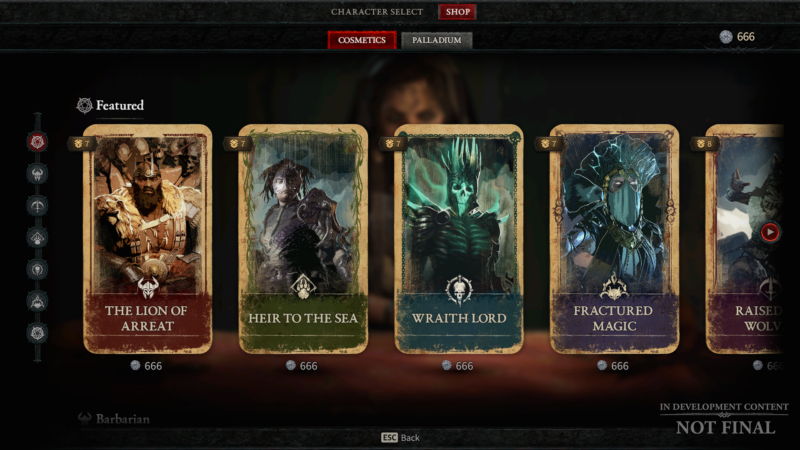
A couple of weeks ago, Blizzard published a long-awaited update about its upcoming action role-playing game Diablo IV. The post shared some new information about how seasons will work and explained how the company plans to shake up the metagame by continuously releasing new content.
But after the contentious release of Diablo Immortal, a game packed to the gills with power-bestowing microtransactions, there was only one question on fans’ minds: How, exactly, would Diablo IV be monetized? These days, that’s not a strange question to ask about a full-priced title like Diablo IV.
There’s good news, but I’m still worried about some of the game’s proposed systems.
It’s alive
The game is going all-in on the “live service” model, with Director of Product Keegan Clark writing in the update that “Diablo IV will be supported by an army of developers for years to come.”
That’s not necessarily a bad thing; the Diablo series has always attracted an obsessive fanbase that’s happy to grind away at the same game for decades. In fact, considering the support Diablo games have historically enjoyed through ladder resets (Diablo II) and seasons (Diablo III), it has always felt a little strange that Blizzard has never charged for much beyond the base games and expansions.
If you want a continuously supported game, it’s reasonable to expect to pay at least something for its upkeep, even if it’s optional (though there are plenty of examples of games that have done just fine by releasing a ludicrous amount of free content over the years). And since there has been no new Diablo III content for quite some time beyond minor seasonal rebalancing, having a team dedicated to producing new seasonal content for the game—including, the blog post tells us, new gameplay features, quest lines, challenges, and live events—is very exciting indeed.
Thankfully, Blizzard reiterated its earlier promise that Diablo IV will offer only cosmetics—not power—for cash. These cosmetics will come from two sources: an in-game shop that sells cosmetic armor pieces for premium currency and a paid battle pass. Seasons—the optional periodic character resets we saw in Diablo III—will remain free. In its post, Blizzard is almost falling over itself to reassure fans that Diablo IV is not Diablo Immortal.
“The way we approached designing the Shop and the cosmetics within it was by thinking about the experience we want players to have,” the post says. “We want buying things to feel good—before, during, and after purchase. So, if players choose to buy something, it should be because they want to, not because they feel like they have to. It should also be clear to players exactly what they are getting before they choose to buy, with no unpleasant surprises.”
But as Ars Culture Editor Sam Machkovech pointed out to me, that cheery statement has some interesting undertones. First, the last sentence is a not-so-oblique reference to lootboxes, a monetization scheme that got Diablo Immortal banned from two European countries. With regulatory and governmental eyes continuing to zero in on the practice, the decision to eschew lootboxes becomes more prudent than beneficent, at least for a certain type of game.
Further, of course Blizzard wants “buying things to feel good”! Why would a company not want to make buying things feel good? The whole “we’re doing this for you” attitude ignores the fact that these “options” were not something anyone was asking for.
https://arstechnica.com/?p=1877698

